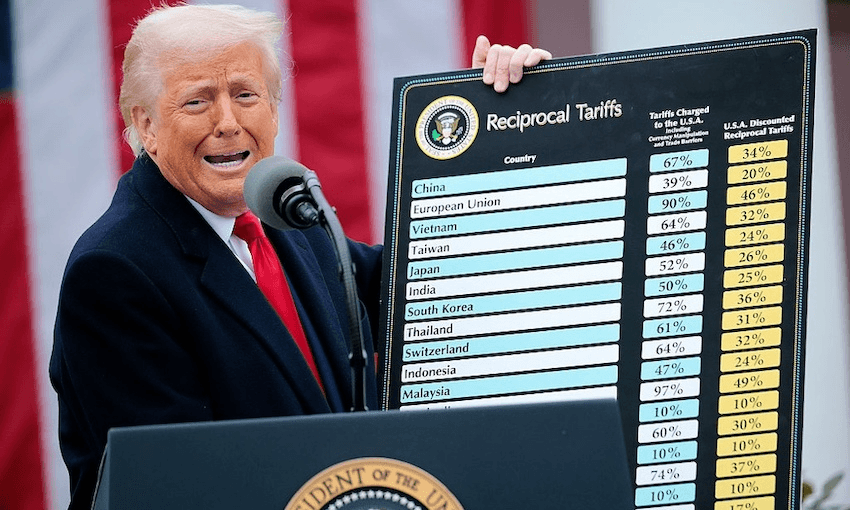Psychologist and TV presenter
Nigel Latta is used to helping others. But the tables turned
after an “incurable”
gastric cancer diagnosis last year.
Latta, an
author and documentary producer is known for his deep dives
into the psyches of criminals, troubled teens and parents,
and for tackling gnarly social issues like obesity, poverty,
and child abuse.
He told Summer Times’ host
Anna Thomas he’s doing well – although there’s “a little bit
of cancer, probably more than I’d like to be
honest.”
“If I could swap this thing for being
bankrupt and flipping burgers somewhere for minimum wage,
I’d do it … if I could do that and be guaranteed 30 more
years with [my wife] Natalie, I’d do that in a second. And
you know, if I said some dumb thing and I got cancelled, I
don’t care, like I’d find something else to
do.
“Almost everything that we worry about doesn’t
matter. The stuff that matters is time with the people that
you care about. And it’s like, I know that’s the most
obvious advice and when you’re not living under this, when
you’re not kind of faced with that being taken away, you
just take it for granted … holding the hand of the person
that you love – that’s all I want to do.”
Advertisement – scroll to continue reading
Despite
being told he has six to 12 months left to live, Latta
remains optimistic, joking that at least he doesn’t have to
worry “if” he has cancer when he’s in pain.
He says
optimism is a “superpower” because research has shown it
does affect survival rates and the immune system.
He
revealed his diagnosis on social media in September last
year and has undergone a range of therapies including
chemotherapy (which he says he’s “tolerated” pretty well),
radiation, and drugs targeting the receptors. There have
been bad days but it’s the support of his wife, Natalie,
that gets him back on track, he says.
“For people who
are out there who are struggling, who’ve asked for a number
[on their years left to live] and were given a scary number,
there was a great paper by a guy called Stephen Jay Gould,
called ‘The
Median Isn’t the Message’ where he talks about how he
was given eight months to live because he had a particular
type of cancer.
“When he started digging into the
stats, what you find is that that 50 percent of the people
will die within that first eight months, but the remaining
50 percent he called it the long tail. And so what that
means is for the remaining 50 percent, they can live much
longer because different things apply. The 50 percent who
die may be older. They may have more [cancer] spread. They
may have more this, more that.
“If you’re on the other
side of the coin, if you’re optimistic, and if you’re
exercising, if you’re younger, if you’re doing all those
sorts of things, then you can live for a long time. And so
being in that long tail, that’s where I am. That’s where I
want to be in, that golden glow.”
People are
incredibly resilient to crisis, but the overuse of trigger
warnings is sending the opposite message, he
says.
“What a flouncy, silly, stupid world that we
live in.
“I remember at my step-daughter’s school, a
bunch of girls went to the principal and they wanted a book
taken off the reading list … it was a novel about poverty,
and they wanted it taken off the list because it was
upsetting for people to read about poverty, and it’s like,
well, I think that was the point of the book, you
know?
“Social media is the stupidest thing ever
really, everyone jumps on everyone for everything, assumes
offence on behalf of other people who aren’t offended in the
first place.
“I spent 30 years working with people who
have been through all kinds of stuff, and sometimes
resilience is being able to get out of bed in the morning
and have some Weetbix, you know, and not be crushed by all
of the things that have happened to you in your life up ’til
then.”
Related
© Scoop Media




















Discussion about this post